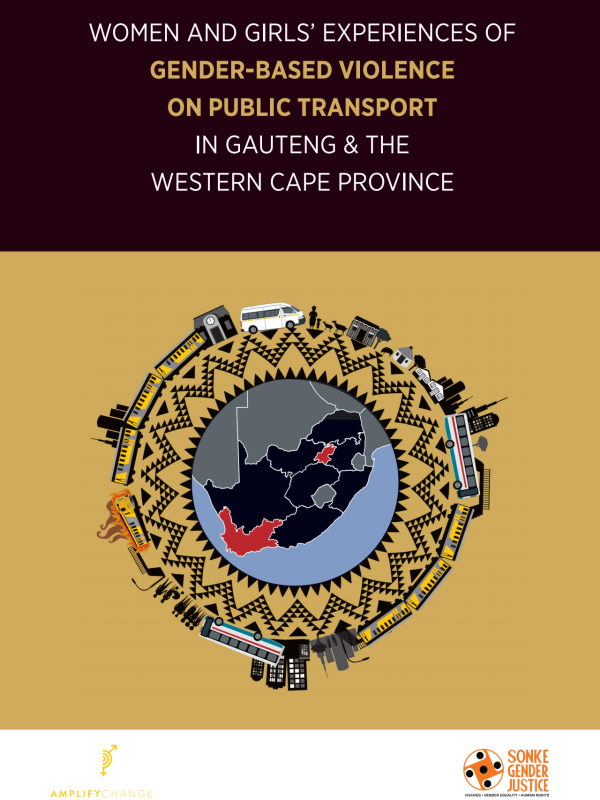- 021 423 7088
- info@genderjustice.org.za
- Whistleblower: 0800 333 059
Transport systems have tended to function in ways that prioritise men’s needs over those of women, which has led to public transport being described as ‘an institution through which hegemonic masculinity is maintained’, where women are at greater risk of violence, sexual harassment and sexual assault. Violence in public places, particularly on public transport systems, reduces the freedom of movement for women and girls, as well as of gender non-conforming persons and individuals of other vulnerable populations like the elderly and persons with disabilities. It therefore places vulnerable groups at risk, which in turn impacts their mobility, safety and overall health and wellbeing.
This report presents the findings of a study conducted in Gauteng and the Western Cape amongst women and girls who use public transport, particularly mini-bus taxis, buses and Metrorail trains. It documents women and girls’ lived experiences of GBV, sexual harassment and crime perpetrated against them, as commuters of public transport. The report also presents safe public transport practices in other countries for adaptation in South Africa and highlights recommendations and proposed interventions to address GBV on public transport, particularly in the Western Cape and Gauteng – and applicable to other areas in South Africa.


Sonke is a South African-based non-profit organisation working throughout Africa. We believe women and men, girls and boys can work together to resist patriarchy, advocate for gender justice and achieve gender transformation.
Please note that Sonke does not offer counselling or other support services to individuals. Click here for information on where to get help.
Sign up for the Sonke e-Newsletter to receive social justice news and views in your inbox.
Please see our Privacy Policy here.